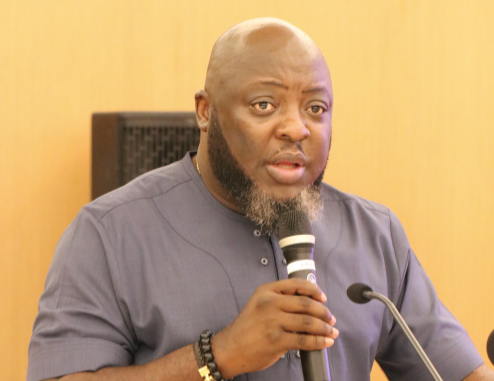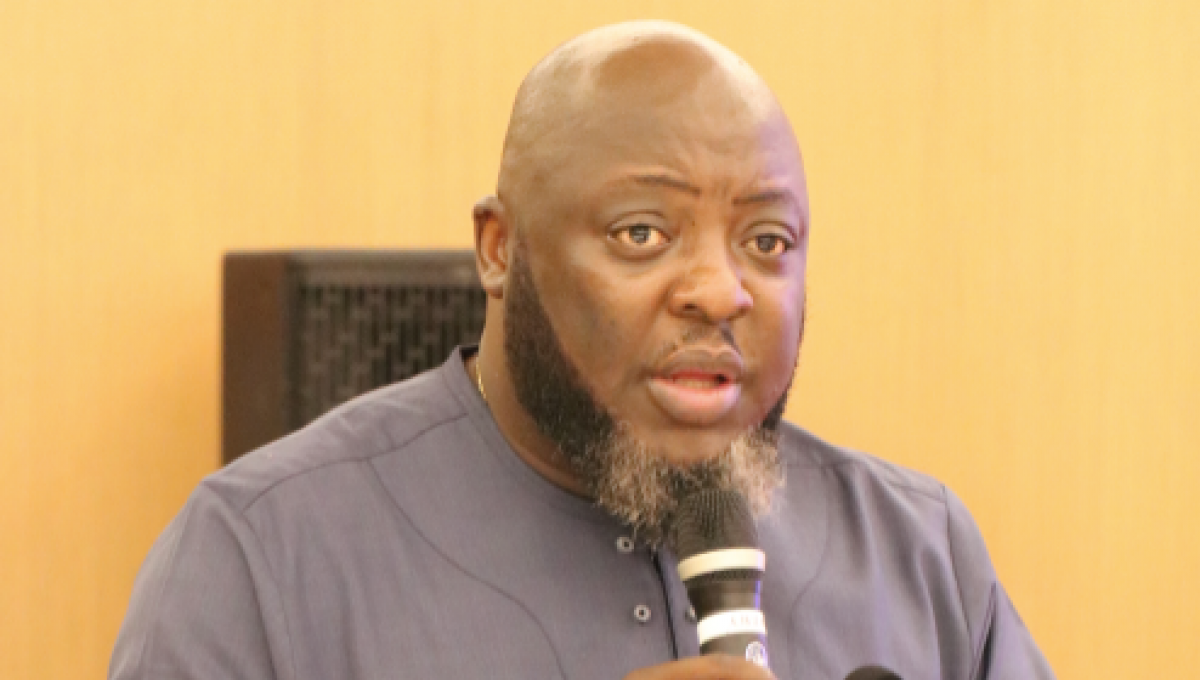Liberia: Was MOE’s DaThong Ignorant of Education Law, or Dodging It?

Latim DaThong, Deputy Minister for Administration at the Ministry of Education.
Mind you, private schools are big business in Liberia and MOE officials are in on it.
It cannot go unnoticed that the Deputy Minister for Administration at the Ministry of Education, Latim DaThong, and his boss, the Minister-proper, D. Ansu Sonii, as well as several other officials of the Ministry, own and operate private schools. Minister Sonii operates a primary school, while DaThong owns and operates an undergraduate institution, Starz College of Science and Technology. So when DaThong told the Daily Observer in an interview that the Ministry of Education did not have the power to regulate tuition increase in private schools, could he have been saying this to help himself and his fellow private school owners working in the Ministry?
Private schools are big business in Liberia. According to the Liberia Education Sector Analysis, published in 2016 by the Ministry of Education, with support from the World Bank and the Global Partnership for Education, Non-governmental schools (i.e., private, mission and community schools) account for 46 percent of student enrollment in Liberia. “At the junior-high (JH) and senior-high (SH) levels, non-government schools account for the majority of student enrollment,” the MOE report says.
“In 2015, private and mission schools accounted for 41 percent of early childhood education (ECE) enrollment, 44 percent of primary school enrollment, 55 percent of junior-high enrollment and 77 percent of SH enrollment. It is notable that the share of primary enrollment in private schools has grown over the past eight years. The share of primary school enrollment in private schools increased from 18.3 percent in 2007/08 to 29.8 percent in 2015,” the report adds.
The question then remains whether DaThong and his MOE colleagues really did not know the law requiring private schools to be regulated by the MOE, or whether the Ministry of Education has conveniently been looking the other way because the law could also affect the financial statements of schools owned by Ministry officials just as well.
Since DaThong made the statement that slammed him in the court of public opinion, the resultant pressure and, most definitely, expert opinions of professional educators, including a former ranking official of the Ministry of Education, have caused the Deputy Minister to reconsider his earlier claim that the MOE has no authority to regulate tuition and fees charged by private schools.
Yet, he has not outrightly retracted the statement, but has embarked on a move to make himself visible in the act of ‘cracking down’ on schools that may be charging exorbitant tuition and fees.
“I am in the field today with all our Ministers. I will visit public and private schools unannounced,” he said on his Facebook page on Monday, November 15, following the outrage over his remarks made the previous week. “I will be taking actions against those that are exploiting our people.”
The pressure from the public was amplified by expert input regarding the Revised Education Law of 2011, which many are inclined to believe DaThong probably had not read until now. Many parents are finding it difficult to enroll their children for continuity in their grade school education due to the extreme increase in fees and tuition.
Last week, when quizzed about the unbearable experience many less fortunate parents have to deal with, the Deputy Minister said he pitied the parents, but that the choice was theirs to take their children to schools they could afford.
“The laws of Liberia do not give us the power to determine private school fees. Private school is a business. If a parent takes their child to a private school and it is too expensive, let them move the child to a different school. It is an option. Nobody forces you to take your child to a private school,” Da-Thong had told theDaily Observer in an interview a week earlier.
The right thing to do?
In that interview, he had said that to mitigate the challenge of private schools allegedly exploiting parents, the government is building additional [public] schools to accommodate more students at a more reasonable cost.
DaThong’s response then also came following reports of some public schools administrators increasing registration fees instead of maintaining with the Ministry’s own announced amounts for the various levels, each.
Now that the Deputy Minister knows the provisions of the Education law, he is calling on the public to help him crack down on schools that have unreasonably increased their tuition and related fees.
“Inbox me names of schools that have hiked their fees unreasonably. This government is the people’s government and our actions will always be in the interest of our people,” he said in his Facebook post, which some pundits consider political rather than structural and realistic.
‘Counterproductive’ whistleblower
DaThong’s previous statement that the Government has no control over private schools’ fees was counter argued first by James Goodday Flomo, a journalist at Spoon FM and Radio by provision of the 2011 New Education Reform Act.
The Ministry considered the action of the journalist counterproductive and came on Facebook condemning the reporter and cautioning the public not to pay heed.
‘Disappointing’
However, on private schools increasing their fees, Flomo cited Chapter 9.1 (g), which says: “Tuition and fees charged by PRIVATE AND FAITH-BASED SCHOOLS shall be in accordance with the guidelines established by the Ministry.”
It is not clear what specific actions might be taken against private schools that have unjustifiably increased their tuition and fees. However, Mwalimu-Koh M. Blonkanjay Jackson, former Deputy Minister of Education, strongly disagreed with DaThong and expressed disappointment in the current leadership at MOE.
“The Ministry of Education, by and through Deputy Minister Latim Da-thong, says ‘there nothing in the Law that gives the Ministry of Education any power to REGULATE private schools’ with reference to what private schools charge as tuition and other related school fees. I seriously disagree!! The Ministry does have the authority to regulate ALL schools as enshrined in the Education Law of 2011,” Jackson said.
Relying on Chapter 1 SECTION 1.5 of the 2011 Education Act, the education expert said: “No school, public or private, must be allowed to charge fees for services not being provided. Just because a school is a private school does not give any right to hike fees without justification. The Ministry must never issue Operational Permit or License to such schools. This is one aspect where ‘REGULATION’ must set in!!”

